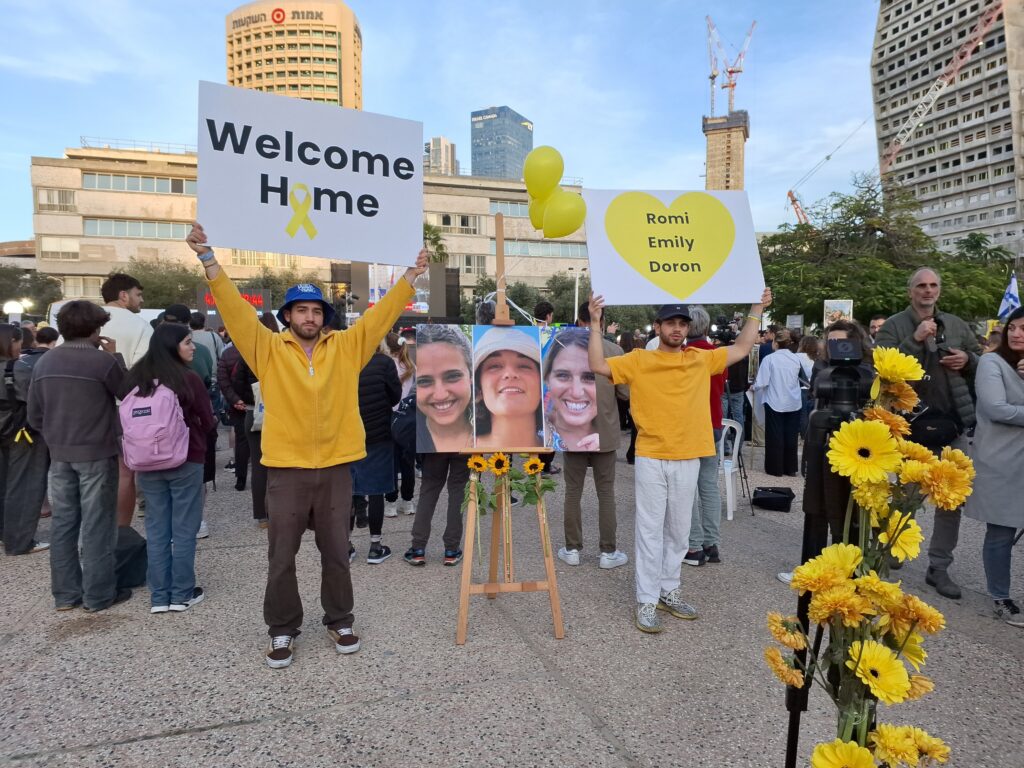IN THE MEDIA
A ceasefire is not enough for a strategic victory in the Middle East
January 28, 2025 | Colin Rubenstein

Today, all elements of the Iranian-sponsored “axis of resistance” – involving no less than seven active fronts – have been substantially degraded.
First and foremost are the losses sustained by Hamas in Gaza and Hezbollah in Lebanon.
A day after Hamas’s attack, Hezbollah joined the fray, firing the first of thousands of rockets, drones and missiles at Israel.
Iran’s other proxies – the Houthis of Yemen and the Shi’ite militias in Iraq – followed suit. Later, Iran dropped its mask entirely, attacking Israel directly in April and October 2024.
Recent face-saving efforts by Hamas and Hezbollah, including strutting around with weapons and declaring on social media that they beat the IDF into submission, shouldn’t fool anyone. Israel not only smashed Hezbollah and Hamas’s terror infrastructure, but eliminated their top leaders and practically all their commanders and best-trained fighters.
Yet these military achievements still need to be converted into lasting Israeli strategic victories off the battlefield.
Hamas and Hezbollah are wounded and degraded but not defeated.
As things stand, there is a six-week mediated ceasefire and lopsided terrorists-for-hostages swap deal between Israel and Hamas that went into effect on January 19, and a 60-day mediated ceasefire between Israel and Lebanon (standing in for Hezbollah) that started on November 27.
Israelis are overjoyed to see some hostages released after 15 months of captivity under the Hamas deal.
However, they also overwhelmingly recognise that the second phase of the agreement, which is supposed to create arrangements for a permanent end to the war and whose details are still to be negotiated, must not preserve the status quo.
If the current ceasefire simply becomes permanent, there is no doubt both terror groups would seek to come back stronger and better prepared, resulting in an even costlier round of war.
In the case of Hezbollah, the ceasefire’s initial endpoint of January 26 has passed but with little achieved.
The Lebanese Armed Forces has yet to deploy in most of south Lebanon and has hardly confiscated any Hezbollah arms.
Israel has requested an extension of the deadline to withdraw from Lebanon in order to prevent Hezbollah rushing into the vacuum and returning to Israel’s borders before the Lebanese army fulfils its promised role.
Australia should add its voice to the countries that support this request.
Regarding Hamas, Israel cannot squander any of its leverage – especially the ability to resume war if necessary.
Otherwise, it will never liberate the dozens of hostages not slated to be freed in the first stage of the deal and will almost certainly see Hamas resume its despotic grip over the Gazan population, putting it back on the path to planning a repeat of October 7, as it has promised to do.
No one wants these conflicts to continue longer than is necessary, but world leaders must remain clear-eyed and continue thinking strategically.
Negotiating with unscrupulous terrorists, while unavoidable in the case of the hostages, is still a Faustian bargain.
The playing field is tilted in favour of jihadists who have no moral qualms about waging endless war, regardless of how many innocents – Israeli, Palestinian, Lebanese or others – are killed.
History teaches that Iranian-backed terror proxies such as Hezbollah and Hamas have always viewed ceasefires as nothing more than temporary and tactical pauses to prepare for the next round.
Yet here at home, particularly regarding Hamas, all too often in recent months we’ve heard Prime Minister Anthony Albanese and Foreign Minister Penny Wong repeatedly push two contradictory messages.
Yes, to an immediate ceasefire, but no to Hamas having any role in the future governance of Gaza.
Unfortunately, the government has studiously avoided articulating how this second goal can possibly be realised if the current war just stops.
The truth is that every war Hamas initiated against Israel was launched when a mediated ceasefire was in place.
In addition, the Hezbollah-instigated war in 2006 ended with a ceasefire and a UN Security Council Resolution 1701 supposed to impose tight restrictions on the terror group.
But it wasn’t worth the paper it was printed on.
Under the noses of a 10,000-strong UN peacekeeping force, Hezbollah used the 17-year ceasefire to amass the largest military arsenal of any terrorist group in the world along Israel’s northern border.
Everyone of goodwill wants the killing and dying to stop, but any ceasefire that leaves Hamas in power in Gaza, militarily or politically, and holding even a single Israeli hostage, or allows Hezbollah to rebuild its terror forces and missile array under the nose of a feckless Lebanese army, would simply light the fuse on an even more terrible war in years to come.
On the other hand, achieving the comprehensive military and political dismantlement of Hamas and Hezbollah is an absolutely indispensable precondition for advancing to any meaningful and lasting peace between Israelis and Palestinians or Israel and Lebanon.






The Australian – 28 January 2025
By any measure, 15 months after Hamas’s barbaric attack against Israel on October 7 started a regional war, the country has scored a string of impressive military achievements.